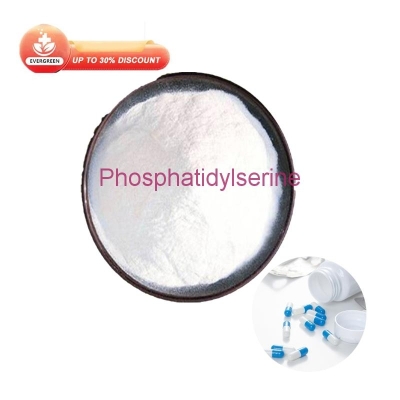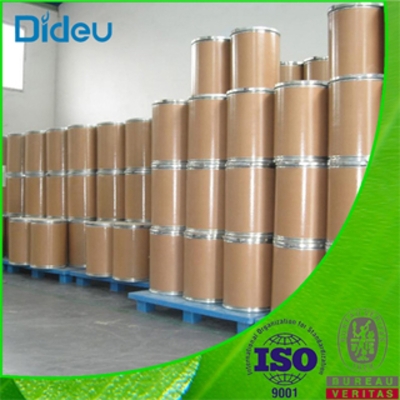The world's first nano preparation for the treatment of non-small cell lung cancer and head and neck cancer ind was approved
-
Last Update: 2017-12-29
-
Source: Internet
-
Author: User
Search more information of high quality chemicals, good prices and reliable suppliers, visit
www.echemi.com
Source: on December 26, 2017, nanobiotix, a French nano pharmaceutical company that pioneered a new approach to cancer treatment, announced that the US FDA approved the company's clinical trial application (ind) for candidate drug nbtxr3, which is a global first in for direct injection of cancer tumor via stereotactic radiotherapy (SABR) activation Class) nanoparticle drugs, patients will be given anti-PD-1 antibody nivolumab or pembrolizumab at the same time, and the indications are approved for the treatment of non-small cell lung cancer (NSCLC) and head and neck cancer (HNSCC) Nbtxr3 is a kind of injectable hafnium oxide nanoparticles aqueous suspension, which is an innovative therapy for solid tumors After intratumoral injection, nbtxr3 can store high energy in the tumor only when the ionizing radiation source is activated (usually radiotherapy) After radiation activation, high-energy radiation can kill tumor cells by triggering DNA damage and cell destruction, so as to improve clinical results Laurent levy, CEO of nanobiotix, said: "it is a milestone for the company to obtain FDA approval for the clinical trial application of nbtxr3 We can immediately carry out the first cancer immunotherapy clinical study in the United States combining nbtxr3 with immunocheckpoint inhibitors We focus on the development of non responsive patients with immunosuppressive checkpoint inhibitors by giving nbtxr3, which is a major progress in the industry This method can solve the problem of unmet medical needs According to the existing clinical and preclinical data, nbtxr3 has the potential to become the cornerstone of cancer immunotherapy " After the approval of this ind, the company can carry out the clinical 1 / 2 phase trial nbtxr3-1100, which is a multi center, prospective, open label, non randomized clinical study to evaluate the efficacy and safety of SABR activated nbtxr3 combined with immunocheckpoint inhibitor nivolumab or pembrolizumab in the treatment of cancer patients The study will be divided into three cohorts, with patients enrolled as relapsed and / or metastatic HNSCC or metastatic NSCLC The study will be conducted in two consecutive phases, the first is dose escalation, and then dose expansion In this study, 36-72 patients were planned to be enrolled in phase 1 and 40 patients in phase 2 The dose escalation phase of nbtxr3-1100 will be based on the classic 3 + 3 study and is planned as a level 3 procedure to determine the appropriate dose of nbtxr3 injected into the tumor and the activation dose of SABR When the dose of nbtxr3 and radiotherapy increases, the dose of anti PD1 antibody will remain unchanged Based on the preliminary risk-benefit ratio observed in the phase 1 trial, an approved anti PD1 antibody will be selected for the dose expansion phase The primary and secondary endpoints of this study will evaluate efficacy and safety, as well as further describe the previously reported exploratory endpoints of treatment-induced genomic changes, including cytokine enrichment activity, adaptive immune response, and labeling of T-cell receptor signaling pathways The first patient in the clinical study is expected to be enrolled in the second quarter of 2018, and the trial results are expected to be obtained in the summer of 2019 The potential of tumor immunodrugs to attack cancer cells by activating the immune system activity of patients has always been the focus of drug research and development "Hot" tumors, infiltrated by T cells and characterized by inflammation, have shown a significant and long-lasting response to immunosuppressive checkpoint inhibitors in some cancer patients who have little response to the existing treatment According to published data, only 15% - 20% of NSCLC patients and 13% - 22% of nhscc patients respond to current immunotherapy The mechanism of nbtxr3 is to induce different immunogenicity, which may be the key to significantly increase the number of cancer patients who benefit from immunooncology treatment As published earlier this year in ASCO & SITC 2017, radioactivated nbtxr3 has been shown to induce specific adaptive immune patterns, with the potential to transform non responders into patients receiving checkpoint inhibitors for immune response (compiled by Sina pharmaceutical / David)
This article is an English version of an article which is originally in the Chinese language on echemi.com and is provided for information purposes only.
This website makes no representation or warranty of any kind, either expressed or implied, as to the accuracy, completeness ownership or reliability of
the article or any translations thereof. If you have any concerns or complaints relating to the article, please send an email, providing a detailed
description of the concern or complaint, to
service@echemi.com. A staff member will contact you within 5 working days. Once verified, infringing content
will be removed immediately.







